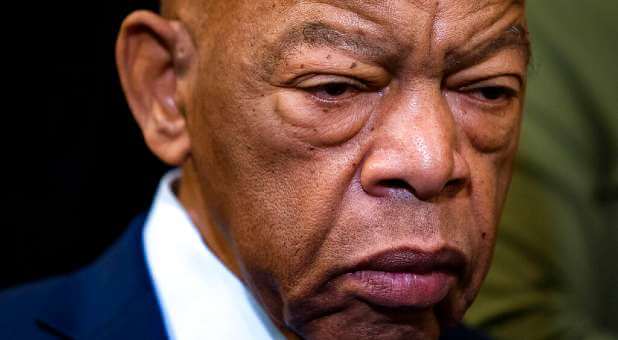I knew John Lewis.
I first met Congressman John Lewis many years ago at the congressional cafeteria. He would always come in by himself, get his order and go to a corner to have lunch.
I had no idea who he was, just that he always seemed to be gruff, angry and determined.
I would regularly bump into him, and after a while, I asked one of the staff who he was, and they told me. I looked him up and was stunned.
He was a civil rights icon, but came in, lined up with everyone else and had his simple lunch.
Finally I had the courage to go up to him and ask him if I could pray with him. In his gruff way, he would say, “Oh, all right.” He was the epitome of the “angry young man” that was the hallmark of his advocacy.
One little-known part of his legacy, though, is that he was a man of faith, and a seminary student when he began his work with Martin Luther King.
A few years back in an interview he said, “I’m deeply concerned that many people today fail to recognize that the movement was built on deep-seated religious convictions. And the movement grew out of a sense of faith—faith in God and faith in one’s fellow human beings.”
He went further:
“Sometimes when I look back and think about it, how did we do what we did? How did we succeed? We didn’t have a website. We didn’t have a cellular telephone. But I felt when we were sitting in at those lunch counter stools, or going on the Freedom Ride or marching from Selma to Montgomery, there was a power and a force. God Almighty was there with us.”
“One generation shall commend your works to another, and shall declare your mighty acts” (Ps. 145:4).
The passing of Rep. John Lewis is a strong reminder to us that the original civil rights movement was led by godly men and women in the name of the Lord Jesus Christ to move America even closer to its godly founding.
The present movement is led in stark contrast by avowed communists who seek to destroy the very godly nation that the previous generation, epitomized by Congressman John Lewis, sought to improve. {eoa}












































